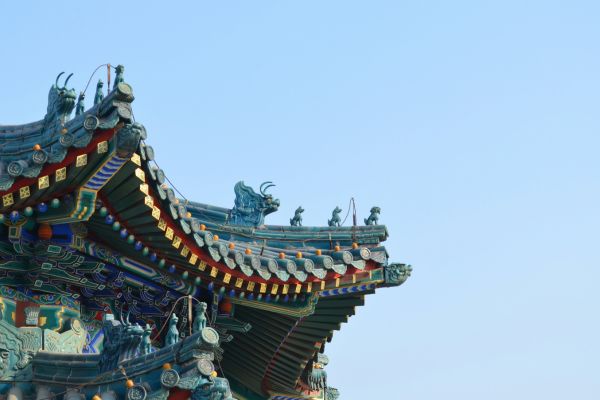
Key takeaways:
- In Huawei v. Conversant (2019) Zui Gao Fa Zhi Min Zhong 732, 733 and 734-1, a landmark case decided by China’s Supreme People’s Court, the first-ever conduct preservation order as equivalent to anti-suit injunctions was issued in China’s IP-related litigation.
- When examining an application for anti-suit injunctions, Chinese courts need to take a 5-element test, taking into consideration factors including the impact on the litigation in China, the necessity of granting the order, damages in cases of failure to granting, public interest, international comity.
In August 2020, the Intellectual Property Court of China’s Supreme People’s Court (SPC) issued, in Huawei v. Conversant (2019), the first-ever conduct preservation order as equivalent to anti-suit injunctions in China’s IP-related litigation, establishing the rules for Chinese courts to review such kind of cases. (See Huawei v Conversant (2019) Zui Gao Fa Zhi Min Zhong 732, 733 and 734-1.)
I. Case background
1. First-instance trial in China
On 25 Jan. 2018, three affiliates of Huawei Technologies Co., Ltd. (collectively hereinafter referred to as “Huawei”) separately filed three lawsuits with Nanjing Intermediate People’s Court (“Court of the First Instance”) against Conversant Wireless Licensing Co., Ltd. (“Conversant”) with respect to three patents of Conversant, requesting: (1) to confirm that Huawei did not infringe upon such patents of Conversant; and (2) to determinate the licensing conditions for Huawei to implement Conversant’s standard essential patents (SEPs).
2. Litigation in Germany
On 20 Apr. 2018, Conversant filed a lawsuit against Huawei and its German affiliates for disputes over the alleged SEP infringement at the Düsseldorf District Court (the “German Court”). The European patents involved in this case are of the same patent family as the Chinese patents involved in the first-instance trial in China.
3. The first-instance judgment rendered by the Chinese court
On 16 Sept. 2019, the Court of the First Instance rendered three judgments, respectively ruling that :(1) Huawei’s request to confirm that it did not infringe Conversant's patents was dismissed; (2) the licensing conditions (including royalty rates) for Huawei to implement Conversant's SEPs were determined.
4. The second-instance (final) trial in China
Conversant was dissatisfied with the judgment of first instance and appealed to the court of second instance, i.e. the SPC, which accepted and registered the case on 18 Nov. 2019.
Given China’s practice of the two-instance trial system, the second-instance trial is also the final trial.
5. German judgment
On 27 Aug. 2020, the German Court rendered the judgment of first instance, holding that: (1) Huawei had infringed upon Conversant's European patents; (2) Huawei should cease the infringement, such as stopping selling relevant products; (3)the royalty rates in SEP licensing proposed by Conversant to Huawei did not violate the FRAND principle.
It’s noteworthy that the royalty rate determined by the German judgment was 18.3 times the rate determined by the Court of the First Instance in China.
6. Huawei filed an application for anti-suit injunctions and the SPC made an anti-suit injunction order.
On 27 Aug. 2020, Huawei applied to the SPC for preservation of conduct, requesting Conversant to be prohibited from applying for enforcement of the German judgment in relation to stopping infringement until the final judgment was rendered by the SPC.
On 28 Aug. 2020, the SPC rendered anti-suit injunction orders in the three cases respectively, supporting Huawei’s anti-suit application. (See Huawei v Conversant, (2019) Zui Gao Fa Zhi Min Zhong 732, 733 and 734-1.)
The SPC stated that it had to render a ruling within 48 hours due to the status of emergency, and thus it did not consider Conversant’s opinions in advance. Conversant may apply for reconsideration afterwards.
7. Conversant applied for reconsideration of the anti-suit injunction order and SPC made a reconsideration ruling.
On 2 Sept. 2020, Conversant filed an application to the SPC for reconsideration of the aforementioned anti-suit injunction.
On 4 Sept. 2020, the SPC held a hearing on the application for reconsideration.
On September 11, 2020, the SPC issued a ruling to dismiss Conversant's request for reconsideration. (See Huawei v Conversant, (2019) Zui Gao Fa Zhi Min Zhong 732, 733 and 734-2.)
8. Huawei withdrew the lawsuit after reaching a settlement with Conversant.
In the second-instance trial, Huawei applied to the SPC for withdrawing the three lawsuits on the ground that it had reached a settlement with Conversant.
On 2 Nov. 2020, the SPC confirmed that :(1) Huawei was allowed to withdraw the lawsuits; and (2) the judgment of first instance was hereby revoked.
II. Court views
1. SPC's opinions in the anti-suit injunction order
(1) What is the nature of the anti-suit injunction under Chinese laws?
Huawei’s application to bar Conversant from applying for the enforcement of the German judgment before the final Chinese judgment being rendered is a kind of application for conduct preservation in nature.
(2) What factors shall Chinese courts consider when examining an application for anti-suit injunctions?
The courts should consider the following factors:
i. the impact of the Respondent’s application for enforcing the foreign court judgment on the litigation in China;
ii. whether it is really necessary to grant a conduct preservation order;
iii. whether the damages caused to the applicant by failure to grant the conduct preservation order exceed the damages caused to the respondent by granting the conduct preservation order;
iv. whether granting a conduct preservation order is prejudicial to the public interests;
v. whether granting a conduct preservation order is in conformity with the principle of international comity; and
vi. other factors should be comprehensively considered.
The above-mentioned requirements are set forth clearly in (3) to (6) below.
(3) Will the respondent’s application for enforcing the foreign court judgment have any impact on the litigation in China?
The Chinese court shall firstly examine whether the conduct of the respondent will have a material impact on the trial and enforcement of the judgment in this case.
Specifically, if relevant acts of the respondent may hinder the trial or cause any difficulty in the enforcement of the judgment of this case, injunctive relief may be taken against such acts.
In this case, once Conversant applied for the enforcement of the German judgment ordering to stop infringement and such application was approved, it would render meaningless the proceedings and judgment of the Chinese litigation
(4) Is it really necessary to grant a conduct preservation order?
The Chinese court shall consider whether the failure to grant a conduct preservation order will cause irreparable damages to the legal rights and interests of the applicant or make it difficult to enforce the case judgment, etc. In principle, injunctive relief can be taken only when it is indeed necessary.
In this case, Huawei could have been forced to agree to the royalty rates demanded by Conversant in the German judgment in order to avoid stopping the alleged infringement (i.e., to stop selling relevant products) pursuant to the German judgment, which would make it virtually impossible to enforce the royalty rate, no matter how much the rate was, determined by the Chinese court.
(5) How should the interests of the applicant and respondent be reasonably balanced?
The Chinese court should determine the interim relief to be reasonable if the damages caused to the applicant in the case of failure to grant the relief exceed that in the case of granting the relief. Meanwhile, the more excess parts are, the more reasonable the interim relief will be.
In this case, the temporary suspension of the German judgment to stop infringement causes relatively minor damage to Conversant. Besides, Chinese banks have provided guarantees for Huawei's application for conduct preservation, which can further protect the interests of Conversant.
(6) Will the granting of a conduct preservation order harm the public interests?
The Chinese court should consider whether the granting of a conduct preservation order will harm the public interests. The interim relief in this case does not affect the public interests.
(7) Does it adhere to the principle of international comity?
The Chinese court shall consider the international comity. In other words, it may take into account the time sequence of case acceptance, whether the jurisdiction over the case is appropriate, and whether the impact on the trial and judgment of foreign courts is appropriate, etc.
Firstly, the Chinese court accepted cases earlier than the German Court. Secondly, the temporary suspension of enforcement of the German judgment will not affect the subsequent German proceedings, nor will it derogate from the legal effect of the German judgment.
2. SPC’s views in the reconsideration ruling
In the application for reconsideration, Conversant claimed that the anti-suit injunction ruled by the SPC had restricted Conversant’s rights under German law, which violated the principle under Chinese laws that the effective scope of judicial decisions shall be limited to the country where the judicial decisions were made; Chinese courts had no jurisdiction over the proceedings and enforcement of a judgment in Germany; the ruling also jeopardized international judicial order and made it impossible to enforce the judgments rendered by foreign courts.
The SPC believed that:
(1) The anti-suit injunction granted by the SPC did not involve the determination of European patent infringement involved in the German proceedings, nor did it make any assessment of the German judgment or enforcement, or interfere with the substantive adjudication and binding effect of the German proceedings. Therefore, the ruling did not involve jurisdiction over the German proceedings.
(2) The fact that the anti-suit injunction granted by the SPC temporarily suspended the application for enforcement of the first-instance German judgment did not amount to denying the effect of the German judgment. The SPC ruling did not affect the follow-up proceedings in Germany, nor did it derogate from the legal effect of the German judgment.
(3) Conversant’s claims in this reconsideration application were contradictory to its previous conducts. In its global litigation activities, Conversant has taken the initiative to apply to foreign courts for anti-suit injunctions to prohibit particular parties from filing relevant lawsuits in Chinese courts. In terms of Conversant’s previous conduct, the anti-suit injunction didn’t seem to have any adverse effect on the jurisdiction of the Chinese court and the international litigation order.
In addition, SPC specifically pointed out in the reconsideration ruling that Huawei and Conversant are engaged in global litigation over the SEPs licensing dispute. The SPC respected the litigation rights and the right of disposal of both parties on the basis of commercial considerations, but the anti-suit injunction issued by the SPC shall also be respected and enforced by both parties. The parties must not, in any way, deny, circumvent or hinder the enforcement of the initial order. In particular, it is not allowed to apply to the German Court for injunctions to counter the execution of the SPC's anti-suit injunction, otherwise, the Chinese court will impose sanctions on such conduct, including the imposition of fines and detention on the person(s) in charge or directly responsible person(s). If the case constitutes a crime, the offender shall be investigated for criminal responsibility according to law.
III. Comments
In this case, the Intellectual Property Court of the SPC made the first-ever conduct preservation order as equivalent to anti-suit injunctions in China’s IP-related litigations.
The case ruling clarifies the applicable conditions and factors for the preservation of conducts as equivalent to anti-suit injunctions, which explores the further improvement of the “anti-suit injunction” system in China. Since then, Chinese courts have adopted such rule in several similar cases.
For more comments on this case, please refer to the article written by Sophia Tang, ‘Anti-Suit Injury in China: Comity, Pragmatism and Rule of Law' on Conflict of Laws. Net.
Photo by Thanos Pal on Unsplash
Contributors: Guodong Du 杜国栋









